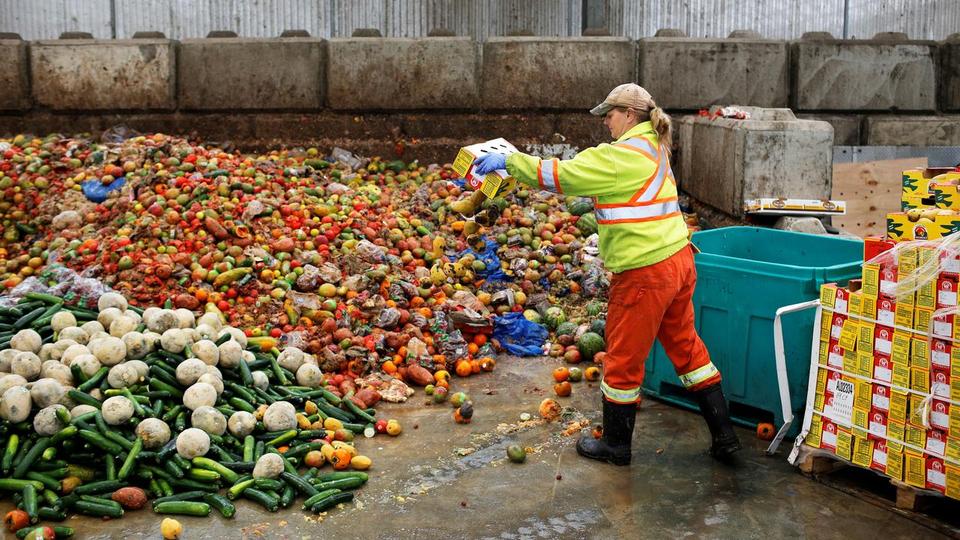The increasing problem of food waste is of high importance on the EU commissions agenda.
The EU environment commissioner Karmenu Vella recently spoke of a strategy to address this growing problem. Figures show an estimated 89 million tonnes of food were wasted in 2010 and could grow to an estimated 126 million tonnes by 2020.
These figures expose the potential problem if a strategy is not put in place at this present time. The commissioner labelled the problem as “shocking and crazy” and went on to say a sustainable approach is needed and can only be achieved through a global solution.
The EU commision is planning to release it’s Circular Economy Package this Autumn with priority focusing on avoiding waste before recycling. More points brought to attention by Vella included the following:
30% of food is wasted.
Food problems are not down to scarcity but over production. Land is overfarmed, over utilised and over exploited. Land in other countries is hardly used.
The Commissioner confirmed in his speech at the European Business Summit that the European commission is to launch an online public consultation. The idea behind the consultation is to gather the views of people and businesses who want to speak up with their ideas.
The original plans to adopt a 70% recycling target for municipal waste and specific marine and food waste targets were originally dropped from the plan but have since been reinstated by Commissioner Vella. More ambitious plans have been promised to be introduced by the end of 2020.
An ambitious waste management initiative
Vella announced that the commission initiative will be significantly ambitious but to be successful will require support from all of society. The successful engagement of all sectors will ensure production of this ambitious proposal will be implemented by the end of the year.
A new Europe-wide campaign titled ‘iFreeze’ is set to educate consumers across the continent on the benefits of freezing food to help cut down on food waste.
Developed and backed by the Iglo Group – best known in the UK for being the parent company of popular frozen food brand Birdseye – iFreeze is aiming to educate more people on how freezing food and leftovers can not only help cut down on waste, but save consumers money, too.
Estimated to be costing in region of €5 million (£3.7 million), iFreeze will be using print media and television commercials in all of the Iglo Group’s key territories, making it a truly international effort.
Backing in the UK will be the Waste Action Resources Programme (WRAP) organisation, with corporate partners Hotpoint and the British Food Federation (BFFF) also contributing to the iFreeze push in the UK when it launches in April.
WRAP’s latest figures suggest that upwards of 850,000 tonnes of food that could have been frozen is thrown away in the UK every year, with the food itself worth up to £3bn – not factoring the cost of food waste disposal.
Research conducted by the Iglo Group also enforce WRAP’s figures, with surveys revealing that over 20% of households still throw away food because they have too much, or because it has been left to go bad.
Andy Weston-Webb, UK MD, Iglo Group, said he believed the company “should and can” help educate European consumers in the fight against food waste, and was “delighted” that Birds Eye would be the first brand to launch iFreeze.
Important of freezing to reduce wastage
WRAP chief executive Dr Liz Goodwin said the partnership with would “highlight the important role freezing can play in reducing food waste” and help support WRAP’s ambition to halve avoidable UK household food waste by 2025.
A new pilot scheme in Germany aims to remove the middle man in industrial food waste collections by shipping food waste from high-traffic industrial locations directly to plants where they can be converted to energy.
Food waste from the catering and hospitality sector at a recycling centre is large. Dubbed ‘BioSuck’, the new scheme aims to revolutionise food waste management in the industrial sector by using vacuum pipes to make it easier and more effective for food waste to be implemented.
A German Federal Ministry of Education and Research (BMBF) funded effort, the aim us to take the non-edible by products of food production – such as the scales from fish, peel from citrus fruit or blood from meat – and turn it in to energy.
Normally these byproducts are not treated as food waste and, along with water from washing and processing food, contribute to a huge amount of wastewater.
By working with the Fraunhofer UMSICHT applied research institute, the BMBF hopes that Biosuck can not only offset that waste water by allowing it specialist treatment, but also slash transportation costs and the associated carbon footprint; less waste trucks on the road means less CO2 emissions.
According to BioSuck, the installation of vacuum lines to transport wastes can save up to 50% on average – and up to 80% depending on the sector of industry.
By centralising the waste source, it also allows research initiatives from the government and universities to be able to monitor waste patterns in the waste stream, allowing for more efficient food production and waste management in the future.
A new report from the London Assembly Environment Committee has called for an immediate refocus on the capital’s food waste management efforts as landfill space is starting to run out.
